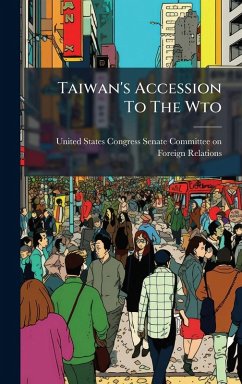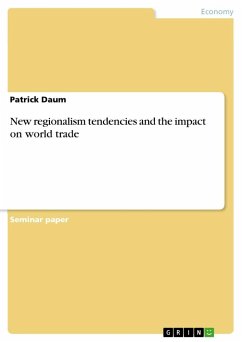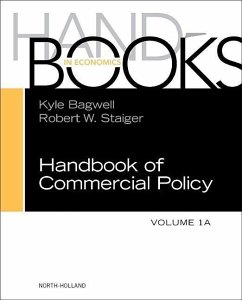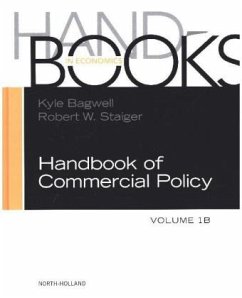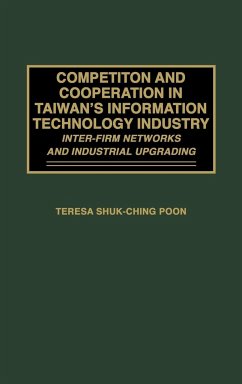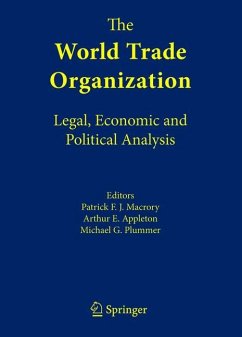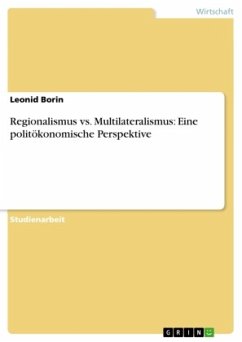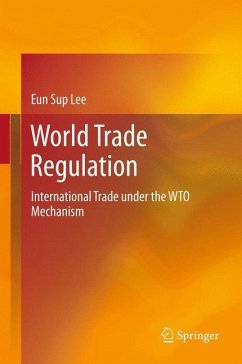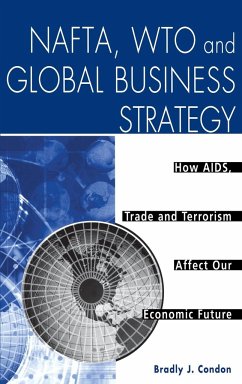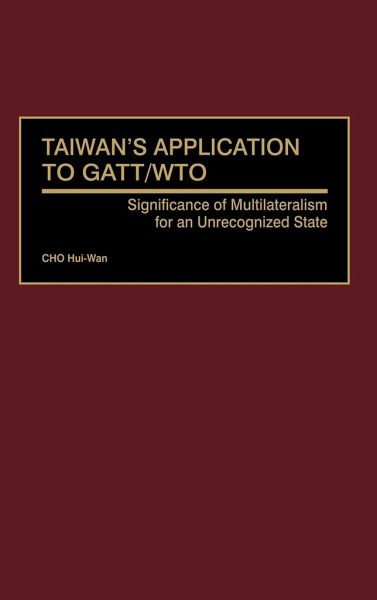
Taiwan's Application to GATT/Wto
Significance of Multilateralism for an Unrecognized State
Versandkostenfrei!
Versandfertig in 1-2 Wochen
87,99 €
inkl. MwSt.

PAYBACK Punkte
44 °P sammeln!
Revealing a powerful economic motive behind Taiwan's 1990 application for GATT membership, CHO questions those who interpreted it solely as a political move designed to break that island nation's diplomatic isolation. Flourishing economically since the 1950s despite non-GATT membership, matters changed for Taiwan in the 1980s when it became both big and small. As a big trader, its dual trade regime was no longer tolerated, while as a small economy with little political clout, Taiwan was pushed to liberalize its trade practices by bilateral pressures. Taiwan believes that the most-favored natio...
Revealing a powerful economic motive behind Taiwan's 1990 application for GATT membership, CHO questions those who interpreted it solely as a political move designed to break that island nation's diplomatic isolation. Flourishing economically since the 1950s despite non-GATT membership, matters changed for Taiwan in the 1980s when it became both big and small. As a big trader, its dual trade regime was no longer tolerated, while as a small economy with little political clout, Taiwan was pushed to liberalize its trade practices by bilateral pressures. Taiwan believes that the most-favored nation principle and diffuse reciprocity embedded in GATT/WTO's multilateralism will sheild Taiwan from the pernicious effects of bilateral asymmetry while simultaneously providing it with more international living space.



